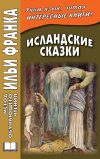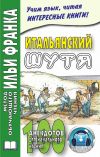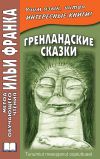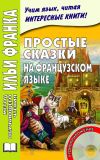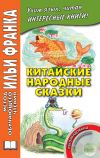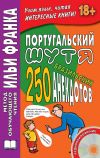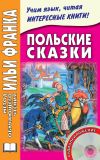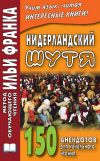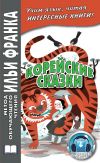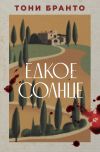Текст книги "Английский XXI века. Дж. Смит. Помеха для общества / John W. Smith. Longer Wacky Stories With Twist Endings"
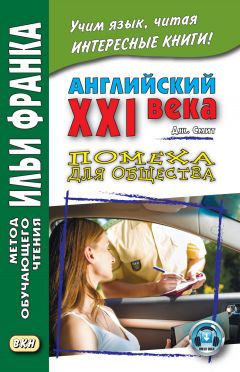
Автор книги: Джон Смит
Жанр: Иностранные языки, Наука и Образование
Возрастные ограничения: +16
сообщить о неприемлемом содержимом
Текущая страница: 3 (всего у книги 10 страниц) [доступный отрывок для чтения: 3 страниц]
Mrs Cheadle Goes Shopping
(Миссис Чидл отправляется за покупками)
'Come on love, give us a kiss (ну же, дорогая, поцелуй нас; love /зд./ – милочка, душечка /прост./; come on! – давай! живее!),' yelled the lad with the spiky hair (вопил парень с «ирокезом» на голове; spiky – утыканный шипами; заостренный, остроконечный; spike – шип; hair – волосы), his scrawny neck poking wormlike from his open leather jacket (его тощая шея, будто червяк, высовывалась /при этом/ из открытой кожаной куртки; to poke – тыкать, пихать; высовываться; – like /суф./ – подобный чему-л., напоминающий что-л.). He threw an empty beer can (он отшвырнул пустую пивную банку; to throw). It clattered across the concrete (она с грохотом покатилась по бетону; to clatter – сильно греметь, грохотать) and hit Mrs Cheadle's tired old ankles painfully (и больно ударила по усталым старым лодыжкам миссис Чидл; pain – боль).
'How dare you (как ты смеешь)……!' she spluttered helplessly, just managing to keep her balance (беспомощно залепетала она, едва ухитряясь удержать равновесие; to manage – управлять; суметь /сделать/). Drawing her handbag up to her chest (подтянув сумочку к груди) she turned to face her antagonists squarely (она повернулась лицом к своим противникам; squarely – под прямым углом; лицом к лицу; square – квадрат).
threw [θru:], concrete ['kɒŋkri:t], squarely ['skweǝlɪ]
'Come on love, give us a kiss,' yelled the lad with the spiky hair, his scrawny neck poking wormlike from his open leather jacket. He threw an empty beer can. It clattered across the concrete and hit Mrs Cheadle's tired old ankles painfully.
'How dare you……!' she spluttered helplessly, just managing to keep her balance. Drawing her handbag up to her chest she turned to face her antagonists squarely.
A girl whose purple and black make-up heightened her corpse-like appearance (девушка, чей пурпурно-черный макияж усиливал по внешности ее схожесть с трупом; to heighten – повышать/ся/, делать/ся/ выше; усиливать/ся/; appearance – появление; внешний вид) detached herself from the group and moved forward menacingly (отделилась от остальных и угрожающе двинулась вперед; group – группа, кучка /людей, предметов/). Mrs Cheadle's alert blue eyes scanned the youngster's face (настороженные глаза миссис Чидл пристально всматривались в юное лицо; youngster – юноша, девушка) for some spark of warmth, some shred of decency (в /поисках/ какой-то искорки теплоты, крупицы вежливости; shred – обрезок, лоскут; частичка, капелька). She found none (но она не нашла /там/ ничего). Stinging ankles forgotten (жгучая боль в лодыжках /была/ позабыта), Mrs Cheadle sped through the doors of the supermarket (миссис Чидл бросилась в двери супермаркета; to speed – двигаться быстро, мчаться) to sanctuary among the shoppers within (чтобы /обрести/ убежище среди покупателей внутри; sanctuary – святилище; приют, пристанище).
heighten ['haɪtn], appearance [ǝ'pɪ(ǝ)rǝns], menacingly ['menɪsɪŋlɪ]
A girl whose purple and black make-up heightened her corpse-like appearance detached herself from the group and moved forward menacingly. Mrs Cheadle's alert blue eyes scanned the youngster's face for some spark of warmth, some shred of decency. She found none. Stinging ankles forgotten, Mrs Cheadle sped through the doors of the supermarket to sanctuary among the shoppers within.
Her breathing quick and shallow (дыша тяжело и часто; breathing – дыхание; shallow – мелкий, мелководный; неглубокий), Mrs Cheadle tottered up the centre aisle to hide herself (миссис Чидл заковыляла к центральному проходу, чтобы спрятаться). Reaching a slim, blue-veined hand (протянув тонкую, с выступающими синими венами руку) to grasp the side of a chiller cabinet (чтобы ухватиться за холодильный шкаф), she leaned against it, bending her head (она прислонилась к нему и нагнула голову) to remove her misted up glasses (чтобы снять запотевшие очки; misted – затуманенный; запотевший) which she wiped with a small, lace trimmed hanky (которые она протерла «маленьким» аккуратненьким кружевным носовым платочком; to trim – подрезать, подстригать; приводить в порядок; hanky /сокр., разг./ = handkerchief – носовой платок).
After a few minutes she felt better and nodded decisively (спустя несколько минут она почувствовала себя лучше и решительно кивнула = тряхнула головой).
aisle [aɪl], remove [rɪ'mu:v], decisively [dɪ'saɪsɪvlɪ]
Her breathing quick and shallow, Mrs Cheadle tottered up the centre aisle to hide herself. Reaching a slim, blue-veined hand to grasp the side of a chiller cabinet, she leaned against it, bending her head to remove her misted up glasses which she wiped with a small, lace trimmed hanky.
After a few minutes she felt better and nodded decisively.
The manager, he was the one to see (заведующий – вот тот, кто поймет /ее/; to see – видеть; понимать, представлять себе). A gum-chewing salesgirl at green-groceries pointed out his office (жующая жвачку продавщица в овоще-бакалейном отделе указала на его кабинет; green – зеленый цвет; съедобная зелень; to point out – указывать, показывать; office – служба, должность; служебное помещение).
Reaching the door, Mrs Cheadle knocked and entered (подойдя к двери, миссис Чидл постучала и вошла; to reach – протягивать /руку/; достигать места назначения). A harassed looking young man looked up (выглядевший усталым молодой человек, поднял глаза; to harass – беспокоить, изводить, тревожить). She introduced herself politely and sat down (она вежливо представилась и села) when he appeared in no hurry to offer her a chair (тогда как он, казалось, не спешил предложить ей стул; in a hurry – в спешке). The young today! she thought despairingly (молодые сегодня! – в отчаянии подумала она). Five minutes later Mrs Cheadle was shaking her head in disbelief (пятью минутами позже миссис Чидл недоверчиво: «в недоверии» качала головой).
groceries ['ɡrǝʋs(ǝ)rɪ], politely [pǝ'laɪtlɪ], despairingly [dɪs'peǝrɪŋlɪ]
The manager, he was the one to see. A gum-chewing salesgirl at green-groceries pointed out his office.
Reaching the door, Mrs Cheadle knocked and entered. A harassed looking young man looked up. She introduced herself politely and sat down when he appeared in no hurry to offer her a chair. The young today! she thought despairingly. Five minutes later Mrs Cheadle was shaking her head in disbelief.
'But surely you can do something (но вы, конечно же, можете что-нибудь сделать)? This is your property (это же ваша территория; property – собственность)! What would your bosses say (что сказали бы ваши начальники) if they knew you were letting those louts drive trade away (если б узнали, что вы позволяете этим хамам распугивать покупателей; to drive away – прогонять, отгонять; trade – занятие, ремесло; клиентура, покупатели)?'
'I've tried, love (я уже пытался, дорогуша). Believe me (поверьте мне). I've had the police around to move them on (я вызывал уже сюда полицию, чтобы их убрали: «передвинули»; around – кругом, вокруг; вблизи, поблизости /амер./) but it was no use (но бесполезно; it is no use – нет смысла).' In exasperation the manager rubbed a hand along his weak-looking jaw-line (в раздражении заведующий потер рукой свой невыразительный: «выглядевший невыразительно» подбородок; jaw-line – линия подбородка; weak – слабый /физически/; невыразительный; to look – смотреть; выглядеть). 'A day later they were back again (днем позже они снова вернулись; to be back – вернуться). When I went home that evening (когда в тот вечер я уезжал домой) I found they'd smashed both my car headlights (я обнаружил, что они разбили у моей машины обе фары). After that, well, I just sort of gave up (после этого я, вроде бы как, сдался; sort of – как бы, вроде; to give up – уступить, сдаться).'
lout [laʋt], exasperation [ɪɡ,zɑ:spe'reɪʃ(ǝ)n], jaw [dʒɔ:]
'But surely you can do something? This is your property! What would your bosses say if they knew you were letting those louts drive trade away?'
'I've tried, love. Believe me. I've had the police around to move them on but it was no use.' In exasperation the manager rubbed a hand along his weak-looking jaw-line. 'A day later they were back again. When I went home that evening I found they'd smashed both my car headlights. After that, well, I just sort of gave up.'
Sweat beaded his receding hairline as he leaned back (бусинки пота выступили на его покатом лбу, когда он откинулся назад; to bead – украшать бисером/бусами; образовывать капли, пузырьки и т. п.; to recede – отступать, пятиться; быть скошенным; hairline – линия волос /на голове/; to lean back – откинуться назад). Suddenly Mrs Cheadle felt sorry for the manager (внезапно миссис Чидл почувствовала жалость к заведующему). He was but a mere lad himself (он ведь сам еще всего лишь парнишка), how could he manage this huge place (как же он может управлять таким огромным магазином; place – место; участок, помещение /специального назначения/) as well as fight running battles with the thugs outside (а еще и непрестанно воевать с тем хулиганьем снаружи; as well as – а также и; to fight – сражаться, воевать; running battle – непрекращающийся бой; thug – разбойник-душитель /член религиозной секты в Индии/; головорез, бандит)?
Mrs Cheadle sighed (миссис Чидл вздохнула). 'I'll be off now (я сейчас пойду; to be off – уходить), but I certainly intend giving the police a piece of my mind (но я намерена непременно сказать полиции, что я о ней думаю; piece of mind – /критическое/ мнение).'
But the middle-aged red-cheeked sergeant at the police station (но в полицейском участке краснощекий сержант средних лет; station – место, местоположение; база, пост) simply blew out his cheeks and sighed (просто надул щеки и вздохнул) after she made her complaint (после того, как она изложила свою жалобу; to make complaint – подавать жалобу).
sweat [swet], hairline ['heǝlaɪn], sergeant ['sɑ:dʒ(ǝ)nt]
Sweat beaded his receding hairline as he leaned back. Suddenly Mrs Cheadle felt sorry for the manager. He was but a mere lad himself, how could he manage this huge place as well as fight running battles with the thugs outside?
Mrs Cheadle sighed. 'I'll be off now, but I certainly intend giving the police a piece of my mind.'
But the middle-aged red-cheeked sergeant at the police station simply blew out his cheeks and sighed after she made her complaint.
'What would you have us do, my dear (что же вы от нас-то хотите: «что вы хотите, чтобы мы делали», моя дорогая; to have smb do smth – заставить кого-л. делать что-л.)? You know, there's only so far we can go without ending up breaking the law ourselves (вы знаете, только так мы можем избежать того, /чтобы не/ нарушить закон самим; so far – до настоящего времени; to go without – обходиться без /чего-л./; to end up – закончить /чем-л./, прийти к /чему-л./). Even if we charge them, take them to court (даже если мы предъявим им обвинение, привлечем к ответственности; to charge – нагружать, загружать; предъявлять обвинение; to take to court – предавать суду), or just leave them in a cell for a day or two (или просто оставим = продержим их в камере денек-другой; to leave), what's the use (какой в том толк; use – употребление, использование; польза, толк)? After a few days they'll be back again (через несколько дней они снова вернутся). You can't win (/тут/ вы не можете победить)!'
Since the death of her husband, Brigadier James Gordon Cheadle, DSM (после смерти ее мужа, бригадного генерала Джеймса Гордона Чидла, /награжденного/ медалью «За выдающиеся заслуги»; since – с тех пор; Brigadier /зд., амер./ = Brigadier General; DSM /аббр./ = Distinguished Service Medal), memories of his fearless, commanding presence came flooding back (наплывали воспоминания о его неустрашимом и властном виде; commanding – командный, командующий; внушительный; presence – присутствие; внешний вид, наружность; to flood back – нахлынуть /о воспоминаниях/) whenever Mrs Cheadle met men like the supermarket manager or the sergeant (всякий раз, когда миссис Чидл встречала людей, подобных заведующему супермаркетом или сержанту).
court [kɔ:t], law [lɔ:], whenever [we'nevǝ]
'What would you have us do, my dear? You know, there's only so far we can go without ending up breaking the law ourselves. Even if we charge them, take them to court, or just leave them in a cell for a day or two, what's the use? After a few days they'll be back again. You can't win!'
Since the death of her husband, Brigadier James Gordon Cheadle, DSM, memories of his fearless, commanding presence came flooding back whenever Mrs Cheadle met men like the supermarket manager or the sergeant.
As she hesitated a flash of inspiration lit up the policeman's blunt features (пока она стояла в нерешительности, вспышка озарения осветила туповатые черты полицейского; to hesitate – колебаться, не решаться; inspiration – вдохновение, воодушевление; вдохновляющая идея; to light up – оживляться, загораться, светиться /о лице, глазах/).
'Look,' he began reasonably (послушайте: «посмотрите», – начал он рассудительно). 'Why don't you use another supermarket (а почему бы вам не пользоваться другим супермаркетом)? There's one just half a mile away from the one you use (в полумиле от того, которым пользуетесь вы, есть один) and they've got about three entrances (и у них /там/, вроде бы, три входа; about – поблизости, рядом; приблизительно, около). All you've got to do is choose one (все, что вам придется сделать, – это выбрать тот) where there aren't any louts hanging about (где не ошивается никакого хулиганья; to hang about – околачиваться, слоняться),' he finished with a smile, pleased at this obviously simple solution (закончил он с улыбкой, довольный этим очевидно простым решением).
inspiration [,ɪnspɪ'reɪʃ(ǝ)n], obviously ['ɒbvɪǝslɪ], solution [sǝ'lu:ʃ(ǝ)n]
As she hesitated a flash of inspiration lit up the policeman's blunt features.
'Look,' he began reasonably. 'Why don't you use another supermarket? There's one just half a mile away from the one you use and they've got about three entrances. All you've got to do is choose one where there aren't any louts hanging about,' he finished with a smile, pleased at this obviously simple solution.
'But I like the one we use – I use (но мне нравится тот, которым мы пользуемся… я пользуюсь),' she corrected herself (поправила она себя). 'We always used it (мы всегда им пользовались). When my husband was alive, that is (то есть, когда мой муж был жив; that is – а именно, то есть). Now that I am alone I see no reason to change (теперь, когда я одна, я не вижу смысла /что-то/ менять), and I like the place (и мне это место нравится). James – he was my husband (Джеймсу – он был моим мужем) – he used to so enjoy buying the occasional neat little packet of smoked salmon (ему так нравилось изредка покупать аккуратный пакетик копченого лосося;occasional – случающийся время от времени, редкий; smoked – копченый). And…and those little blocks of Danish blue cheese in their shiny wrappers (и… и эти брусочки датского голубого сыра в блестящей обертке; block – колода, чурбан; что-л. имеющее форму кирпича, кубика). He knew just where everything was and so did I (он знал даже, где все находится = лежит, и я знала). And he was mad about their Stilton (и он с ума сходил от их «Стилтона»)…..'
husband ['hʌzbǝnd], occasional [ǝ'keɪʒ(ǝ)nǝl], salmon ['sæmǝn]
'But I like the one we use – I use,' she corrected herself. 'We always used it. When my husband was alive, that is. Now that I am alone I see no reason to change, and I like the place. James – he was my husband – he used to so enjoy buying the occasional neat little packet of smoked salmon. And…and those little blocks of Danish blue cheese in their shiny wrappers. He knew just where everything was and so did I. And he was mad about their Stilton…..'
She trailed away, her mind going back to their last wedding anniversary (она замолчала, мысленно вернувшись к последней годовщине их свадьбы; to trail away – умолкать; mind – память, воспоминание) when she had surprised James with a bottle of his favourite malt whiskey (когда она /приятно/ удивила его бутылкой любимого солодового виски) and a pound of Stilton cheese, very ripe, the way he liked it (и фунтом сыра «Стилтон», вызревшего: «очень зрелого», такого, как он любил). The look he had given her from the depths of his armchair (взгляд, которым он одарил ее из глубин своего кресла) had made her feel young again (заставил ее почувствовать себя снова юной). As young as they had both been when they had first met (такой юной, какими они были оба, когда встретились впервые), he a dashing young officer, complete with twirled moustache and a ramrod straight back (он – молодой удалой офицер, вдобавок с закрученными усами и прямой, как шомпол, спиной; dashing – стремительный; лихой; complete – полный, целый; дополненный, укомплектованный). He had completely bowled her over at the Christmas Ball in the officers' mess (он совершенно покорил ее на рождественском балу в офицерском клубе; to bowl over – сбить; произвести огромное впечатление; mess – пища, обед, подаваемые за общим столом; столовая, клуб-столовая)….
favourite ['feɪv(ǝ)rɪt], whiskey ['wɪskɪ], moustache [mǝ'stɑ:ʃ]
She trailed away, her mind going back to their last wedding anniversary when she had surprised James with a bottle of his favourite malt whiskey and a pound of Stilton cheese, very ripe, the way he liked it. The look he had given her from the depths of his armchair had made her feel young again. As young as they had both been when they had first met, he a dashing young officer, complete with twirled moustache and a ramrod straight back. He had completely bowled her over at the Christmas Ball in the officers' mess….
'Ahem!' coughed the sergeant politely (гм! – вежливо кашлянул сержант). 'Are you all right, my dear (с вами все в порядке, моя дорогая)?' he asked, breaking up her reminiscing (спросил он, прерывая ее воспоминания; to break up – прекращать, заканчивать). She shrugged her thin shoulders (она пожала своими худыми плечами; thin – тонкий; худой). At the doorway she paused and looked back (в дверях: «в дверном проеме» она остановилась и оглянулась назад; to look back – оглядываться).
'You know, James wouldn't have given up so easily,' she murmured (знаете, а Джеймс не сдался бы так легко, – пробормотала она). The sergeant stared at her blankly (сержант тупо уставился на нее).
That night Mrs Cheadle dreamed of the old brigadier (той ночью миссис Чидл снился старый бригадир). In their kitchen she had plopped a knob of butter (у них на кухне она шлепнула кусочек масла; to plop – шлепнуть, хлопнуть; knob – выпуклость, шишка; небольшой кусочек) on the pile of boiled cabbage in a Pyrex bowl (на груду вареной капусты в миске из жаропрочного стекла; Pyrex – пирексное стекло) and put it back in the oven (и поставила /все/ это назад в духовку). The joint of roast beef surrounded by glistening new potatoes was already in there (там уже находился кусок ростбифа в окружении /долек/ блестящего молодого картофеля; joint – место соединения, стык; часть разрубленной туши; new – новый; молодой /о вине, сыре, картофеле/).
cough [kɒf], reminisce [,remɪ'nɪs], pause [pɔ:z], brigadier [,brɪɡǝ'dɪǝ]
'Ahem!' coughed the sergeant politely. 'Are you all right, my dear?' he asked, breaking up her reminiscing. She shrugged her thin shoulders. At the doorway she paused and looked back.
'You know, James wouldn't have given up so easily,' she murmured. The sergeant stared at her blankly.
That night Mrs Cheadle dreamed of the old brigadier. In their kitchen she had plopped a knob of butter on the pile of boiled cabbage in a Pyrex bowl and put it back in the oven. The joint of roast beef surrounded by glistening new potatoes was already in there.
Closing the door she turned the heat down low (закрыв дверцу, она убавила температуру; to turn down – убавлять, уменьшать; heat – жара, зной; нагрев, накал; low – на низком уровне) and prepared the gravy-boat, ready to take the juices of the cooked meat in a minute or two (и приготовила соусницу, чтобы через минуту-другую собрать /туда/ сок от тушеного мяса; gravy – подливка, соус; boat – лодка, шлюпка; сосуд в форме лодочки; to prepare – готовить, подготавливать; ready – готовый /к чему-л./; cooked – приготовленный, сваренный). First a glass of sherry with James, a fond ritual every Sunday lunchtime (сперва бокал хереса с Джеймсом – милый ежевоскресный ритуал в обеденное время). She hung up her apron behind the door (она повесила свой передник за дверь) and walked into the drawing room (и вошла в гостиную). But where was he (но где же он)? She glanced around and spied him lying flat on the carpet (она взглянула по сторонам и заметила его лежащим, растянувшись: «плоско», на ковре; to spy – заниматься шпионажем; подмечать, замечать), infantry in front and artillery cover behind (спереди пехота, сзади прикрывает артиллерия; cover – крышка, покрытие; прикрытие, защита), enemy in the trenches upfront, all lined up before him (враг в окопах впереди, все выстроены в линию перед ним).
juice [dʒu:s], ritual ['rɪtʃʋǝl], carpet ['kɑ:pɪt], artillery [ɑ:'tɪl(ǝ)rɪ]
Closing the door she turned the heat down low and prepared the gravy-boat, ready to take the juices of the cooked meat in a minute or two. First a glass of sherry with James, a fond ritual every Sunday lunchtime. She hung up her apron behind the door and walked into the drawing room. But where was he? She glanced around and spied him lying flat on the carpet, infantry in front and artillery cover behind, enemy in the trenches upfront, all lined up before him.
Only this time when he reached out to move a plastic figure (только в тот момент, когда он потянулся, чтобы передвинуть пластмассовую фигурку) she saw that something was wrong (она поняла, что-то идет не так). A build-up of enemy armour had begun on either flank (наступление вражеских танков началось по обоим флангам; build-up – накопление, увеличение; развертывание /сил/; armour – защитное вооружение, броня; бронетанковые войска). His troops were in an impossible position (его войска находились в ужасном положении; impossible – невозможный, невыполнимый; ужасный), with no way out but to retreat with heavy casualties (не имея другого выхода, кроме как отступить с тяжелыми потерями;way out – выход из положения; casualty – несчастный случай; раненый, убитый /воен./). He looked up and caught her expression (он поднял глаза и заметил выражение ее лица; to catch – поймать, схватить; увидеть /мельком/; expression – выражение /чего-л./; выражение /глаз, лица и т. п./).
'Surrender (сдаться)? Good heavens no, old girl,' he boomed cheerfully (Боже правый, нет, голубушка, – прогудел он весело; old girl – старушка /независимо от возраста/; милая /обращение/). 'Remember what I've always told you about strategy (вспомни, что я всегда рассказывал тебе о стратегии).' He laughed and rolled over to accept the glass of sherry (он засмеялся и перекатился, чтобы принять бокал хереса) she was holding out (который она протягивала ему; to hold out – предлагать, протягивать).
armour ['ɑ:mǝ], either ['aɪðǝ], casualties ['kæʒʋǝltɪz]
Only this time when he reached out to move a plastic figure she saw that something was wrong. A build-up of enemy armour had begun on either flank. His troops were in an impossible position, with no way out but to retreat with heavy casualties. He looked up and caught her expression.
'Surrender? Good heavens no, old girl,' he boomed cheerfully. 'Remember what I've always told you about strategy.' He laughed and rolled over to accept the glass of sherry she was holding out.
'Some of us use strategy every day of our lives (некоторые из нас используют стратегию в жизни каждый день), yet hardly even know it (однако едва ли осознают это). The more fashionable nowadays call it lateral thinking (те, кто посовременнее: «более модные», нынче называют это нестандартным мышлением; lateral thinking – нестандартное мышление; lateral – боковой; поперечный; направленный в сторону), but it's all the same really (но на самом деле это одно и то же). You've got to forget your inhibitions (нужно забыть об ограничениях; inhibition – подавление, сдерживание) and all the rules your life has ever been conditioned by (и обо всех правилах, которым подчиняется твоя жизнь; to condition – обусловливать, определять). Think in a way no one would ever believe you could think (думать так, как никто никогда бы не поверил, что ты сможешь думать).' He raised his glass and winked up at her (он поднял свой бокал и подмигнул ей).
Then as she regarded him doubtfully (тут, поскольку она отнеслась к его словам: «к нему» с сомнением; to regard – рассматривать, считать; относиться) he began moving his troops around (он начал перемещать свои войска), explaining how he would turn certain defeat into victory (объясняя, как он превратит несомненное поражение в победу; to turn – поворачивать; превращать /во что-л./, изменять; certain – точный, определенный; бесспорный).
fashionable ['fæʃ(ǝ)nǝb(ǝ)l], inhibition [,ɪnhɪ'bɪʃ(ǝ)n], certain ['sɜ:tn], defeat [dɪ'fi:t]
'Some of us use strategy every day of our lives, yet hardly even know it. The more fashionable nowadays call it lateral thinking, but it's all the same really. You've got to forget your inhibitions and all the rules your life has ever been conditioned by. Think in a way no one would ever believe you could think.' He raised his glass and winked up at her.
Then as she regarded him doubtfully he began moving his troops around, explaining how he would turn certain defeat into victory.
When Mrs Cheadle awoke it was still dark (когда миссис Чидл проснулась, было еще темно; to awake), and she wandered out to the kitchen to make a cup of tea (и она побрела на кухню, чтобы заварить /себе/ чашку чаю). Drawing her late husband's dressing gown tightly around her slight frame (туго затянув халат покойного мужа вокруг своей хрупкой фигурки; to draw – тащить, волочить; затягивать; late – поздний, запоздалый; покойный, усопший; frame – каркас, скелет) she crept into the drawing room (она прошаркала в гостиную; to creep – ползать, ползти; еле передвигать ноги /о старых и больных/). There she lit the gas fire (там она зажгла газовый камин; to light), installed after the brigadier was no longer around to help light a real fire (установленный потому, что бригадира больше не было рядом, чтобы помочь разжечь настоящий камин; to be around – находиться неподалеку; no longer – уже не, больше не). Drawing the curtains open she placed her cup within easy reach (раздвинув занавески, она поставила чашку в пределах досягаемости; to draw open – открывать рывком, отдергивать; easy reach – легко доступный). Then she lowered herself into the brigadier's old armchair (затем опустилась в старое кресло бригадира) and stared thoughtfully out at the first streaks of dawn (и задумчиво уставилась на первые лучики рассвета; streak – полоска, прожилка; вспышка света).
wander ['wɒndǝ], tightly ['taɪtlɪ], armchair ['ɑ:mtʃeǝ]
When Mrs Cheadle awoke it was still dark, and she wandered out to the kitchen to make a cup of tea. Drawing her late husband's dressing gown tightly around her slight frame she crept into the drawing room. There she lit the gas fire, installed after the brigadier was no longer around to help light a real fire. Drawing the curtains open she placed her cup within easy reach. Then she lowered herself into the brigadier's old armchair and stared thoughtfully out at the first streaks of dawn.
A couple of hours later she roused herself (двумя часами позже она поднялась), her cup of tea cold and forgotten by her side (/а/ позабытый в чашке чай /давно уже/ остыл; cold – холодный; by one's side – рядом с /кем-л./). It was time to go to the supermarket (было = настало время отправляться в супермаркет). So upset had she been the previous day (такой расстроенной она была в предшествующий день; upset – опрокинутый; расстроенный, встревоженный) that most of shopping still remained undone (что большинство покупок остались несделанными).
When she was ready to leave she did something unusual (когда она была готова выходить, она сделала кое-что необычное; to leave – оставлять, покидать; уходить, уезжать); she took out her diamond engagement ring from her dressing table drawer (она достала свое обручальное кольцо с бриллиантом из ящичка туалетного столика; to take out – вынимать; engagement – обязательство; обручение, помолвка) and slipped it on a finger (и украдкой натянула его на палец; to slip – скользить, плавно передвигаться; сделать /что-л./ тихо и незаметно).
Outside stood her car, a little well-kept mini (снаружи стояла ее машина – маленькая ухоженная микролитражка; to stand; well-kept – содержащийся в порядке; mini /зд./ = minicar) which had been her husband's last Christmas present to her (которая была ей последним рождественским подарком от мужа).
couple ['kʌp(ǝ)l], unusual [ʌn'ju:ʒʋǝl], diamond ['daɪǝmǝnd], engagement [ɪn'ɡeɪdʒmǝnt]
A couple of hours later she roused herself, her cup of tea cold and forgotten by her side. It was time to go to the supermarket. So upset had she been the previous day that most of shopping still remained undone.
When she was ready to leave she did something unusual; she took out her diamond engagement ring from her dressing table drawer and slipped it on a finger.
Outside stood her car, a little well-kept mini which had been her husband's last Christmas present to her.
But today her hands, usually rock-steady (но сегодня ее руки, обычно твердые, как скала; steady – прочный, устойчивый), trembled with a barely suppressed thrill of impatient anticipation (дрожали от едва подавляемого волнения и нетерпеливого предвкушения). This proved her undoing, as the car wouldn't start (машина не заводилась – это доказывало, что она нервничает; to undo – уничтожать сделанное; взволновать, вывести из себя; to start – вскакивать; заводиться /о машине, двигателе/). Betty Cheadle had flooded the engine (Бетти Чидл залила двигатель)! It always happened when she was in a hurry (такое всегда случалось, когда она /куда-то/ торопилась; to be in a hurry – «находиться в спешке», спешить)! Waiting for the excess fuel to disperse (ожидая, когда излишек горючего рассосется) she idly toyed with her engagement ring (она лениво поигрывала своим обручальным кольцом). It was no longer a tight fit (оно больше не сидело /на пальце/ плотно; tight fit – тугая, плотная посадка), but the diamond still flashed with a deep, white hot fire (но бриллиант по-прежнему сверкал ярким, ослепительным огнем; deep – глубокий; интенсивный; white hot – раскаленный добела) that flickered briefly as she held up her gradually steadying hand (который мгновенно вспыхивал, когда она вытягивала постепенно успокаивающуюся = перестающую дрожать руку; brief – короткий, недолгий; to hold up – выставлять, показывать).
Внимание! Это не конец книги.
Если начало книги вам понравилось, то полную версию можно приобрести у нашего партнёра - распространителя легального контента. Поддержите автора!Правообладателям!
Данное произведение размещено по согласованию с ООО "ЛитРес" (20% исходного текста). Если размещение книги нарушает чьи-либо права, то сообщите об этом.Читателям!
Оплатили, но не знаете что делать дальше?

